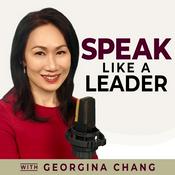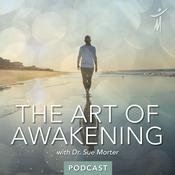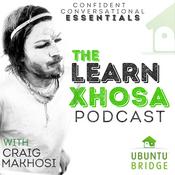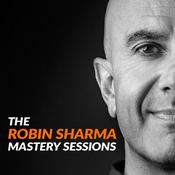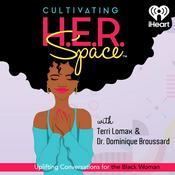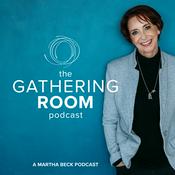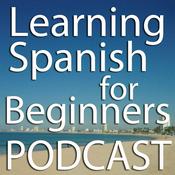Your Parenting Mojo - Respectful, research-based parenting ideas to help kids thrive

302 episodes

Episode Summary 06: When Holiday Gift Boundaries Don’t Work (What Does?)
2025/11/24 | 18 mins.
Have you ever opened a gift from your parent and felt your stomach drop? You've tried everything - wishlists, clear conversations, explicit boundaries about gift giving. But the packages keep arriving, filled with things that feel totally opposite from your values. And then you're stuck in this awful place where you're simultaneously angry at them for not respecting your boundaries AND judging yourself for not just being grateful. In this episode, I'm sharing part of a powerful coaching conversation with Sam, who's spent years trying to set gift giving boundaries with her mom. What we discovered is that when unwanted gifts trigger us this intensely, they're touching something way deeper than clutter or consumption. When I talked with Nedra Glover Tawwab recently, she advocated for very strong boundaries: if you get unwanted gifts, you send them back. How the other person feels about that is not your responsibility. You might decide that a hard boundary is the best option for you. But at the end of the day, it doesn’t address the hurt you’re feeling that is leading you to consider a boundary. Through an embodiment exercise, Sam found empathy for her mom's needs while still honoring her own need to be truly seen. But the real breakthrough came when we talked about what to do when your parent simply can't give you what you long for - and why that requires grief work, and not always stronger boundaries. Questions this episode will answer Is it normal to have resentment for your parents over gifts? Yes. When unwanted gifts keep coming despite clear boundaries, that resentment often connects to a deeper need - wanting your parent to truly see and understand you. What is the psychology behind excessive gift-giving? Gift givers are often trying to meet needs like staying relevant, feeling competent as a parent, creating connection, and mattering in their grandchildren's lives, especially when physical distance or other limitations exist. How do you respond to unwanted gifts without losing your mind? You can't just decide the gifts don't bother you anymore. It may help to mourn the relationship you wished you had with your parent, and get your need to be seen met through other relationships. What to do with unwanted gifts when boundaries keep failing? You can continue donating them through Buy Nothing groups, but the real shift happens when you stop attaching meaning to the gifts - when a dancing cactus becomes just a dancing cactus, not evidence that your parent doesn't see you. How do you let go of anger and resentment towards a parent? Through embodied mourning rituals - not just making a decision in your head. This might involve gathering with people who truly see you and symbolically releasing the longed-for relationship you're acknowledging you won't have. How do you set boundaries with parents when they won't respect them? Sometimes moving forward means you stop holding the door open, exhausting yourself while you wait for them to walk through it. You find other ways to meet your needs instead. What you'll learn in this episode

Episode Summary 05: How to Enforce Boundaries When Someone Doesn’t Respect Them
2025/11/10 | 25 mins.
You've told your parents you're not available during work hours. They keep calling anyway. You've asked them not to comment on your weight. They bring it up again on the next visit. You've said no to those random Amazon gifts. Another package arrives at your door. Many parents know how to set boundaries, but get stuck when someone won't respect them. In this summary episode, therapist Nedra Glover Tawwab shares practical strategies for enforcing boundaries when people repeatedly ignore or dismiss them. You'll learn about the "fire extinguisher method" for stopping uncomfortable conversations before they spiralhow to embody your boundaries through your actions (not just your words)how to navigate the especially tricky situation where you rely on someone for childcare but they won't respect your limits. Nedra also discusses her new children's book and works through real scenarios about unwanted gifts, body-shaming comments, and what to do when setting a boundary means potentially losing support you need. This conversation gets honest about the hard choices enforcing boundaries sometimes requires. Can you really maintain a boundary with someone you depend on? What do you do when the person provides childcare for you? Nedra offers a clear framework for deciding when to stand firm, how to take action when words aren't working, and why allowing people to be upset with you is part of the process. Questions this episode will answer How do you deal with someone who doesn't respect boundaries? Enforce the boundary through your behavior, not just your words. If someone keeps calling during work hours after you've asked them not to, don't answer the phone. If they bring unwanted gifts, donate them immediately or return them to the gift-giver. You can't control what they do, but you can control what you do. Why is setting boundaries so hard? We often learned in our families of origin that setting boundaries leads to rejection or anger. We worry about people being mad at us, the relationship ending, or being seen as selfish. These fears come from early experiences where our caregivers responded poorly when we tried to express our needs and boundaries. How do you enforce boundaries when words aren't working? Use behavioral enforcement. Stop answering calls during the times you've said you're unavailable. Use the "fire extinguisher method" to interrupt conversations the moment they start heading toward topics you've said are off-limits. Show through your actions that you meant what you said. What is the fire extinguisher method for boundaries? Jump in to stop conversations before they get going, the way you'd use a fire extinguisher on a small flame before it spreads. When someone starts bringing up a topic you've clearly said you won't discuss, interrupt them immediately: "I know where this is going, and I don’t want to talk about it.” Why do people get upset when you set boundaries? Some people are used to being able to say or do whatever they want in the relationship. Your boundary ‘brushes up against’ their expectation of having full access to you or being able to speak freely. They may also genuinely believe you need to hear what they have to say. Should you be with someone who doesn't respect your boundaries? This depends on the severity of the violation and your level of dependence. If someone provides childcare but also body shames you, you may need to find alternative childcare to truly maintain the boundary. Sometimes you have to choose between the support someone offers and having your boundaries respected. You might accept that certain behaviors come as part of the "package," or you might want to reduce your...

257: I Don't Enjoy Playing With My Kid: Why It Happens & What To Do
2025/10/20 | 42 mins.
Do you ever wake up with tension in your body because you know your child will want to play the moment you walk out of your bedroom? Do you spend time with your child but think about all the chores you should be doing instead? Parent Aija came to a (FREE!) Beyond The Behavior coaching call with exactly this challenge. She plays with her four-and-a-half-year-old son a lot. But she doesn't enjoy it. And she has big feelings of guilt and shame about that. What starts as a question about setting boundaries and making time for herself becomes something much deeper. We discover that Aija's struggle with play isn't really about play at all. When we explore what makes Special Time so hard, we uncover sadness and grief that Aija didn't even realize was there. The messages she received as a child about productivity and being a "good" future wife and mother are still running in the background, making it really hard for her to be present with her son. But we also find three concrete strategies that help Aija see a way forward. By the end of our conversation, her entire demeanor has shifted. She's smiling. She has a plan. We’ll uncover the key reasons why playing with our kids is hard, and how to get the most out of this important time. Questions This Episode Will Answer What is parenting guilt? Parenting guilt shows up when you think you "should" enjoy something but you don't. As Aija describes it: "I don't enjoy just spending time playing. My kids, that's terrible. But it seems that no matter how much Special Time we have, it's not enough for him." It's the gap between the parent you think you're supposed to be and the reality of your experience. Why do I have parenting guilt about not enjoying play? Parenting guilt often comes from comparing yourself to others and from messages you received growing up. When Aija watches her husband play easily with their son, she thinks "I want to be like that" - but that comparison triggers shame, which makes it even harder to make decisions aligned with your values. What is Special Time with your child? Special Time is consistent daily dedicated one-on-one time with your child where they get to choose the activity. The purpose is to meet their need for autonomy, along with their needs for connection, joy, and fun. How is Special Time linked to my child’s behavior? Even just spending 10 minutes consistently with your child can have enormous benefits on their connection with you (and thus their behavior in situations outside of Special Time). Many of the behaviors that parents find irritating (resisting leaving the house in the morning, annoying behaviors, hitting siblings, bedtime stalling) are kids’ best attempt to connect with us - when they do these things, we pay attention to them. When we do Special Time, they’ll likely stop using these behaviors to get your attention/connection. What are the benefits of Special Time? Special Time meets your child's needs for connection, joy, play, and autonomy. When children get their connection needs met consistently, they're less likely to use challenging behaviors to get your attention. As we discover in Aija's situation, her son's morning behaviors (taking her bookmark, throwing blankets over her head) are his way of trying to get connection time. How to do Special Time with kids? Special Time should ideally be 10 minutes of consistent daily play where the child gets to choose the activity. The consistency is really important. It’s much better to do 10 minutes daily than an hour on an unpredictable basis. This communicates to your child: “You’re special. I love you and I want to spend time with you.” How to make...

256: Managing Anger as a Parent: The Two Types of Anger You Need to Know
2025/9/29 | 26 mins.
Are you tired of feeling guilty every time you get angry as a parent? What if your anger actually contains valuable information about what needs to change in your family systems? Most parental anger management approaches treat all anger the same way - as a problem that requires control. But research shows there are actually two distinct types of parental anger, and understanding this difference changes everything about how you respond. Instead of suppressing your emotions or exploding at your kids, you can learn to use your anger constructively to create positive change for your family. In this episode, you'll discover why traditional anger control methods often backfire and learn a practical framework for responding to your anger in ways that honor both your emotional experience and your family's wellbeing. You'll understand when your anger is pointing to legitimate systemic problems versus when it's signaling you've hit your personal limits. Questions this episode will answer Why do I get so angry as a parent? Parental anger often emerges when core values around fairness, respect, or safety are violated, or when you're overwhelmed and basic needs aren't being met. What are the two types of anger parents experience? Values-Aligned Anger carries information about legitimate concerns and aims for positive change, while Reactive Anger emerges from overwhelm, triggers, or unmet basic needs. How can I control my anger with my child? The HEAR method (Halt, Empathize, Acknowledge, Respond) provides a framework for responding to anger constructively rather than suppressing or exploding. How does parental anger affect children? When parents model constructive anger responses, children learn that emotions can fuel positive change rather than destruction, and that their voices matter. How do I deal with parental anger issues? Understanding whether your anger is Values-Aligned (requiring systemic changes) or Reactive (requiring self-care and healing) determines the most effective response strategy. What are the symptoms of parental rage? Reactive anger typically comes suddenly with surprising intensity, seems disproportionate to triggers, and leaves you drained, while Values-Aligned anger builds gradually and energizes you toward solutions. What you'll learn in this episode Why emotional suppression techniques often backfire and create "emotional rebound" effectsHow to distinguish between Values-Aligned Anger (pointing to systemic problems) and Reactive Anger (signaling overwhelm or triggers)The HEAR method for responding to anger constructively while maintaining family connectionPractical strategies for addressing the mental load and inequitable parenting responsibilitiesHow to model healthy anger responses that teach children their emotions have valueWhen to focus on systemic changes versus personal healing and self-careWhy your anger about impossible parenting standards reflects legitimate concerns about family-unfriendly systemsHow to break the Anger-Guilt Cycle that keeps parents stuck in suppression and explosion patterns Ready to dig deeper into your triggered reactions? If you find yourself experiencing a lot of Reactive Anger - the kind that seems to come from past triggers or overwhelming stress - our Why You're So Angry with Your Child's (Age 1- 10) Age-Appropriate Behavior - And What to Do About It masterclass can help. This program gives you tools for staying regulated and connected with your children even in challenging moments, including how to address the root causes of triggered reactions. When you understand and heal the experiences from your own childhood that keep...

255: Why Do I Keep Snapping? Parenting Rage When Your Childhood ‘Wasn’t That Bad
2025/9/22 | 35 mins.
Do you find yourself going from zero to a hundred in seconds when your child spills something, refuses to cooperate, or has a meltdown? If you're constantly asking yourself, "Why do I keep snapping at my child?" or "Why am I so angry as a parent?" - you're definitely not alone. Many parents struggle with parenting triggers that seem to come out of nowhere, leaving them wondering how such small incidents can create such big reactions. What if your childhood "wasn't that bad" but you're still dealing with parenting anger? In this episode, we explore the connection between unknown childhood trauma and parenting triggers through a real coaching session with Terese, a teacher and mom of three who found herself snapping at her kids despite having plenty of support at home. You'll discover how unresolved childhood trauma in adults shows up in parenting - even when we don't recognize our experiences as traumatic - and learn practical strategies to break generational cycles of yelling and reactivity. Questions this episode will answer Can you have childhood trauma and not know it? Yes - many adults don't recognize patterns like walking on eggshells or constant criticism as signs of unresolved childhood trauma, but these experiences still create parenting triggers and shape how we respond to stress as parents. Why do I get so angry as a parent when my childhood wasn't traumatic? Unknown childhood trauma often involves seemingly "normal" experiences that still create triggers in our nervous system, causing us to react intensely to situations that mirror our past, even if we don't identify our upbringing as traumatic. What are the signs of unresolved childhood trauma in adults? Signs include quick reactivity to minor issues, parenting anger over small things, feeling like everything is "your fault," difficulty with self-compassion, and repeating patterns you experienced as a child - even from childhoods that seemed "fine." How do I stop getting angry with my child? Breaking the cycle of parenting triggers involves recognizing your unknown childhood trauma patterns, meeting your basic needs (like movement and rest), and developing self-compassion instead of self-judgment. How to deal with rage as a parent? Start by identifying your baseline needs, practice self-compassion when you do snap, work to separate your mother's voice from your own thoughts, and understand that parenting anger often stems from unresolved trauma and parenting patterns. Why am I so triggered by my child when I had a normal childhood? Children often activate our own childhood wounds through their behavior, especially when it mirrors situations where we felt criticized or blamed as kids - even in families we remember as loving or "normal." What you'll learn in this episode You'll hear how one parent's story of snapping over a bike ride reveals deeper patterns rooted in unknown childhood trauma - growing up with a mother who yelled frequently in what she considered a "normal" household. We explore how seemingly typical childhoods involving walking on eggshells create adults who struggle with self-compassion and parenting triggers, even when they don't identify their experiences as traumatic. Discover practical strategies for addressing unresolved childhood trauma in adults, including how to identify your movement and rest baselines, why self-compassion is crucial for breaking cycles of parenting anger, and how to recognize when you're thinking critical thoughts rather than accepting them as truth. You'll learn why meeting your basic needs isn't selfish when dealing with parenting triggers - it's essential for showing up as the parent you want to be. We also address how unresolved trauma and parenting intersect,
More Education podcasts
Trending Education podcasts
About Your Parenting Mojo - Respectful, research-based parenting ideas to help kids thrive
Listen to Your Parenting Mojo - Respectful, research-based parenting ideas to help kids thrive, What In The 20’s? and many other podcasts from around the world with the radio.net app

Get the free radio.net app
- Stations and podcasts to bookmark
- Stream via Wi-Fi or Bluetooth
- Supports Carplay & Android Auto
- Many other app features
Get the free radio.net app
- Stations and podcasts to bookmark
- Stream via Wi-Fi or Bluetooth
- Supports Carplay & Android Auto
- Many other app features


Your Parenting Mojo - Respectful, research-based parenting ideas to help kids thrive
download the app,
start listening.















